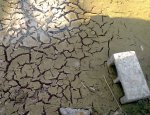crsublette
coyotes call me Charles
Yes, surface area and very highly oxygenated agitated media are both required and equally important.
Show me an oxygenated skippy bio-filter that has completed the nitrification cycle within 5 days from only using pond water, ammonium hydroxide, and everything else is sterilized.
Here is one that a hobbyiest conducted: new test tank. Read it carefully and notice the presence of nitrates within 5 days at post#176. Now, since this unit achieved nitrates this fast, then just think how fast it can adapt to adversity.
Now. I showed you mine. You show me yours. Where is the non-agitated, not oxygenated, static submerged bio-filter or even oxygenated skippy bio-filter or even bead filter testimonial that would be comparable to this achievement ??
For your documented labratory tests, then check out American Society for Microbiology. and, lets just narrow the scope to ammonia oxidation and do a key word search for: growth rates, freshwater ammonia oxidizing bacteria, freshwater Nitrosomonas oligotropha, freshwater Nitrosomonas europaea/eutropha.
Show me an oxygenated skippy bio-filter that has completed the nitrification cycle within 5 days from only using pond water, ammonium hydroxide, and everything else is sterilized.
Here is one that a hobbyiest conducted: new test tank. Read it carefully and notice the presence of nitrates within 5 days at post#176. Now, since this unit achieved nitrates this fast, then just think how fast it can adapt to adversity.
Now. I showed you mine. You show me yours. Where is the non-agitated, not oxygenated, static submerged bio-filter or even oxygenated skippy bio-filter or even bead filter testimonial that would be comparable to this achievement ??
For your documented labratory tests, then check out American Society for Microbiology. and, lets just narrow the scope to ammonia oxidation and do a key word search for: growth rates, freshwater ammonia oxidizing bacteria, freshwater Nitrosomonas oligotropha, freshwater Nitrosomonas europaea/eutropha.



